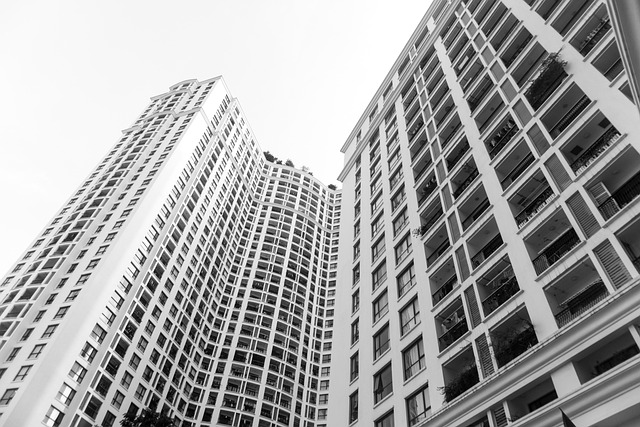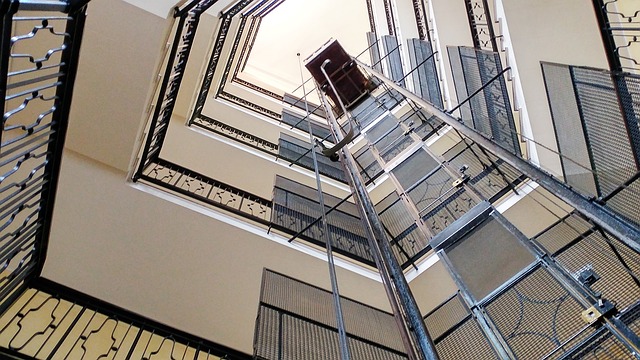Home Repair and Maintenance are crucial for maintaining the safety, energy efficiency, and longevity of a home. Regular plumbing checks are vital to prevent issues like leaks, clogs, and water damage by inspecting fixtures, faucets, pipes, and using devices to detect hidden leaks. Proactive maintenance includes managing water pressure and addressing any signs of malfunction, ensuring that the plumbing system remains efficient. Similarly, maintaining the home's electrical system involves routine safety inspections of outlets, circuit breakers, and wiring, with professional help recommended for complex tasks. Energy-efficient upgrades, such as smart technology integration, can lead to significant savings and enhance comfort. Homeowners should be vigilant in identifying issues early and act swiftly to prevent minor problems from becoming major ones. Recognizing when to seek professional assistance for plumbing or electrical repairs is essential due to the complexity and potential safety risks involved. Adhering to local regulations and permit requirements is also important when undertaking such repairs. By keeping up with regular maintenance and knowing the limits of DIY projects, homeowners can protect their properties and avoid more costly and extensive future repairs.
When it comes to safeguarding and enhancing your home, a solid grasp of both plumbing and electrical systems is indispensable. This article delves into the critical aspects of home repair and maintenance, emphasizing the pivotal roles these systems play in everyday living. From identifying common plumbing issues and their solutions to performing essential electrical safety checks, readers will gain valuable insights for long-term care and when professional assistance is necessary. Understanding the importance of these components ensures a safe, efficient, and well-maintained abode.
- Understanding the Role of Plumbing in Home Repair and Maintenance
- The Importance of Electrical Systems in Maintaining a Safe and Efficient Home
- Identifying Common Plumbing Issues and Solutions for Homeowners
- Essential Electrical Safety Checks Every Homeowner Should Perform
- Strategies for Long-Term Plumbing and Electrical Maintenance
- When to Call in the Professionals: Knowing the Limits of DIY Home Repair and Maintenance
Understanding the Role of Plumbing in Home Repair and Maintenance

Regular home repair and maintenance are crucial for ensuring the safety, efficiency, and longevity of a residential property. Within this context, the role of plumbing is integral. Plumbing systems are responsible for supplying potable water for consumption and hygiene, as well as removing wastewater from the home. A well-maintained plumbing system prevents leaks, backflow, and water damage that can lead to mold growth and structural issues. It also ensures that all fixtures, including faucets, toilets, showers, and sinks, operate optimally.
Homeowners should be vigilant about monitoring their plumbing systems for any signs of wear or failure, such as slow drains, unusual noises, or changes in water pressure. Regular inspections, timely repairs, and preventative maintenance by qualified professionals can head off more serious problems down the line. Additionally, understanding the layout of one’s plumbing system is essential for effective home repair and maintenance. This includes knowing where the main water shut-off valve is located to mitigate water damage in case of an emergency. Moreover, staying informed about advancements in plumbing technology can help homeowners make smart decisions when upgrading fixtures or pipes, ultimately enhancing the overall functionality and energy efficiency of their homes. It is advisable to consult with experienced plumbers who can provide expert advice tailored to individual household needs, ensuring that home repair and maintenance efforts encompass all facets of a home’s plumbing infrastructure.
The Importance of Electrical Systems in Maintaining a Safe and Efficient Home

Home repair and maintenance encompass a wide range of activities, among which ensuring the safety and efficiency of electrical systems is paramount. A well-maintained electrical system not only powers our daily lives but also protects against hazards such as short circuits, electrical surges, and fire risks. Expert electricians play a crucial role in this process by conducting regular checks, upgrading wiring to meet current standards, and installing modern safety devices like circuit breakers and ground fault interrupters. These professionals also integrate smart technology solutions that enhance energy management, leading to cost savings and a more comfortable living environment. Homeowners must prioritize regular inspections and prompt repairs to prevent minor issues from escalating into significant problems. By adhering to best practices in home repair and maintenance, particularly in relation to electrical systems, households can operate safely and efficiently, minimizing the risk of unexpected failures that could disrupt daily activities or compromise safety. Regular maintenance includes checking for any signs of wear or damage, ensuring all electrical appliances are functioning correctly, and verifying that outlets and switches are working as intended. This diligence is essential for maintaining an environment where electronic devices can perform optimally and where the inhabitants are protected from preventable electrical incidents.
Identifying Common Plumbing Issues and Solutions for Homeowners

When it comes to home repair and maintenance, understanding common plumbing issues is crucial for safeguarding the integrity of your home. Homeowners should be vigilant in detecting problems early on to prevent minor issues from escalating into costly repairs. A frequent concern is slow or clogged drains, often resulting from accumulated soap scum, hair, and debris. To address this, regular maintenance such as using drain cleaners or physically removing obstructions can be effective. Another prevalent issue is leaky faucets, which not only waste water but also increase utility bills. Homeowners can tighten the fixtures or replace worn-out washers to resolve this. It’s also imperative to monitor water pressure; excessively high pressure can lead to burst pipes and other damage. Pressure regulators are a solution to maintain optimal water flow and protect plumbing systems. Additionally, homeowners should be aware of the signs of hidden leaks, which include mold growth, mildew, or unexplained water meter movement. These can cause significant water waste and structural damage if left unchecked. Employing leak detection devices or hiring professionals for a thorough inspection can pinpoint these issues, allowing for timely repairs. Regular inspections of the entire plumbing system, including checking for corrosion in pipes, valves, and fixtures, is part and parcel of home repair and maintenance routines. By staying proactive and addressing issues promptly, homeowners can ensure their plumbing systems remain efficient and problem-free.
Essential Electrical Safety Checks Every Homeowner Should Perform

Regular home repair and maintenance, particularly regarding electrical systems, is a cornerstone of safe and efficient homeownership. Homeowners should conduct routine electrical safety checks to ensure their homes are secure and compliant with safety standards. These checks encompass several critical components. Firstly, it’s important to inspect all outlets for any signs of wear, discoloration, or damage. Ensure that each outlet is functioning correctly by testing them with a plug-in tester. Additionally, verify that ground fault circuit interrupters (GFCIs) are properly installed in areas prone to moisture, such as bathrooms and kitchens, and test them monthly to confirm their functionality.
Secondly, assess the condition of your service panel or circuit breaker box. Look for any visible damage or overheating components. It’s advisable to ensure that all breakers are clearly labeled for the corresponding circuits. Overloading circuits can lead to fire hazards, so verify that no more than one heavy-duty appliance is plugged into a single circuit. Inspecting wiring, particularly in older homes, is also crucial. Loose connections or outdated wiring can pose significant risks and may necessitate an upgrade to safer, up-to-code systems. For tasks that require specialized knowledge, such as replacing the service panel or rewiring parts of your home, it’s wise to consult with a licensed electrical expert to perform these home repair tasks safely and in compliance with local building codes. Regularly performing these electrical safety checks and staying informed about home repair and maintenance best practices will help safeguard your home against potential electrical hazards.
Strategies for Long-Term Plumbing and Electrical Maintenance

Regular maintenance and strategic upkeep are pivotal in safeguarding your home’s plumbing and electrical systems for the long haul. For plumbing, it’s advisable to regularly inspect fixtures, faucets, and pipes for signs of wear or leaks. The prevention of minor issues from escalating into major disasters begins with routine checks. Drains should be cleaned periodically to prevent clogs, and water pressure should be monitored to ensure it’s neither too high nor too low, which can cause unnecessary strain on the system. In terms of electrical maintenance, homeowners should prioritize the inspection and testing of their electrical panels, wiring, and devices. Ensuring that circuit breakers function correctly and that all electrical connections are securely tightened is crucial for safety and efficiency. LED lighting, smart energy solutions, and energy-efficient appliances should be considered as part of a long-term strategy to reduce electricity consumption. Home Repair and Maintenance best practices include documenting service records, understanding the location of your main water shut-off valve, and keeping a well-stocked toolkit for do-it-yourself fixes. Professional evaluations every few years can pinpoint potential issues before they become costly repairs, extending the life and performance of both plumbing and electrical systems within the home.
When to Call in the Professionals: Knowing the Limits of DIY Home Repair and Maintenance

When a homeowner encounters issues with their plumbing or electrical systems, it’s crucial to assess the situation to determine whether it’s a task within the scope of DIY home repair and maintenance or if it demands professional expertise. Plumbing problems such as recurring clogs, water leaks that cause structural damage, or a sudden lack of running water are signs that a licensed plumber should be consulted. These issues can escalate quickly, potentially leading to more extensive and costly repairs. Similarly, with electrical systems, any work that involves rewiring, replacing a circuit breaker, upgrading the service panel, or addressing persistent power outages or flickering lights should be handled by a certified electrician. Attempting such work without proper training can pose significant safety risks, including fire hazards and electrical shock. It’s important to recognize that while many home repair and maintenance tasks can be tackled with confidence, the complexity and potential consequences of plumbing and electrical repairs often necessitate calling in professionals who are trained, experienced, and equipped to handle these challenges safely and effectively. Homeowners should also consider local regulations and permit requirements when undertaking such projects, as non-compliance can lead to fines or the need to redo the work. By understanding the limits of DIY home repair and maintenance, homeowners can protect their home’s integrity, ensure safety, and potentially save time and money in the long run.
Homeowners play a pivotal role in safeguarding and maintaining their homes’ plumbing and electrical systems. This article delineates the critical aspects of home repair and maintenance, highlighting the indispensable nature of these two components for a safe and efficient living environment. Understanding common plumbing issues and implementing effective solutions, alongside conducting essential safety checks on electrical systems, are key practices for any homeowner. When DIY efforts reach their limits, it’s imperative to recognize the expertise of plumbing and electrical professionals. By adhering to the outlined strategies for long-term maintenance and seeking expert assistance when necessary, residents can ensure their homes remain in optimal condition.
